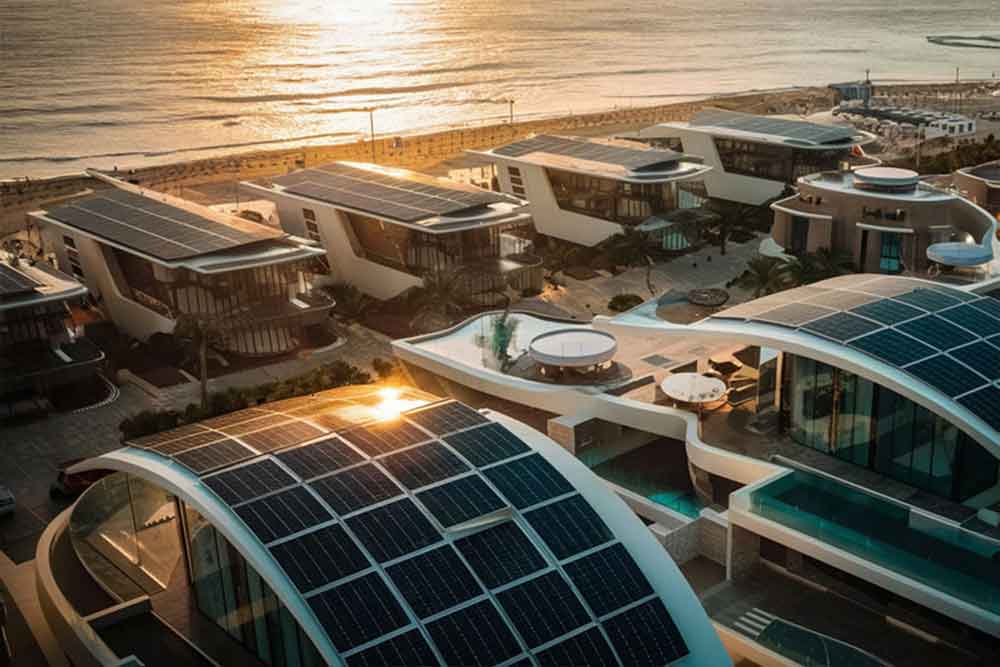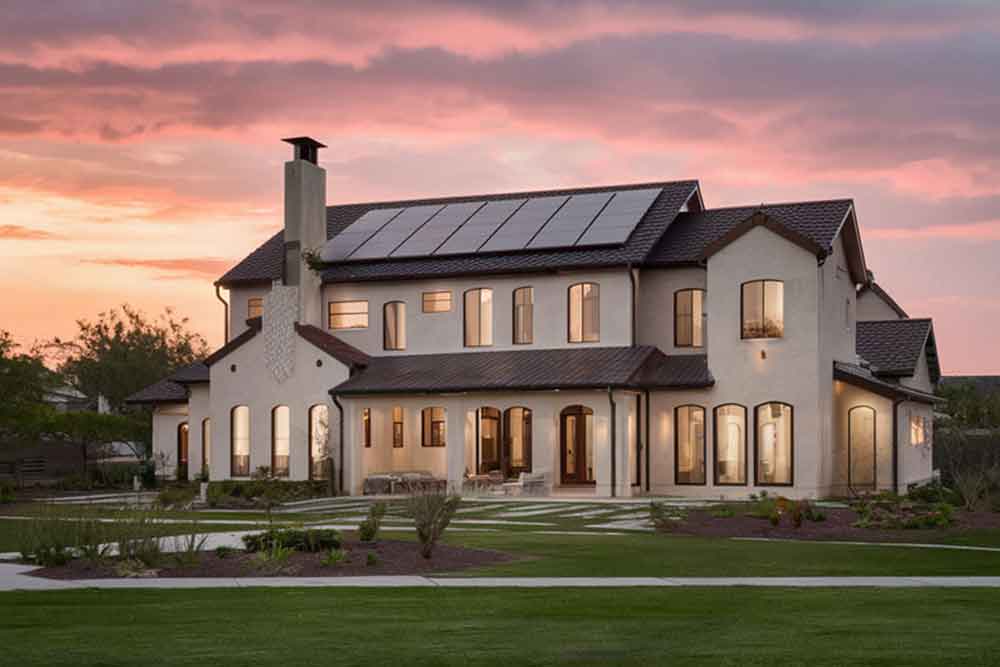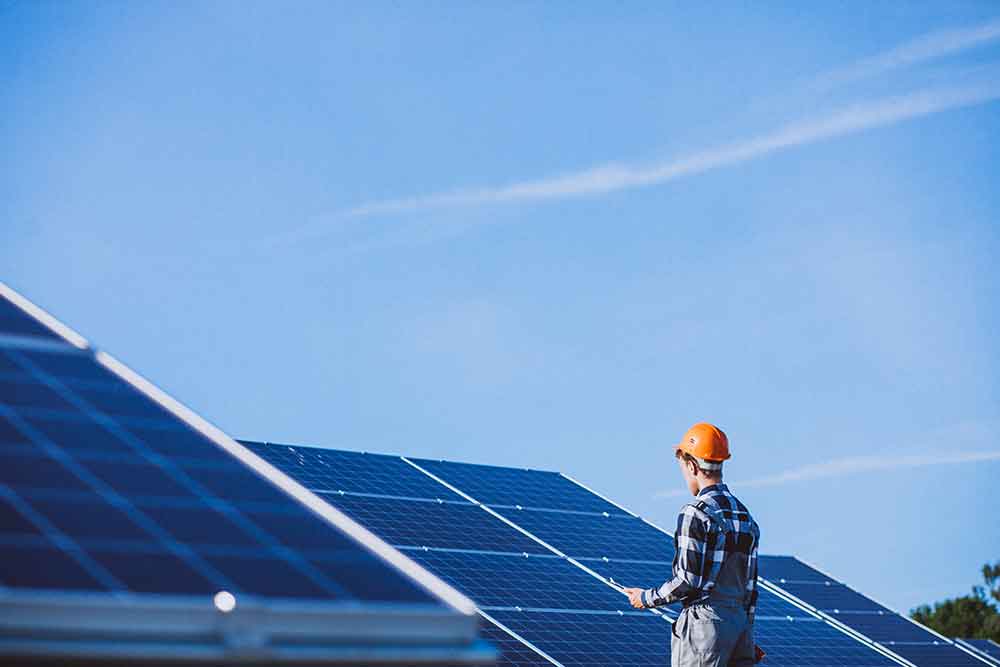Do you know you can save on electricity bills? But how? Shams Dubai is a project by DEWA, initiated to reduce electricity bills and use alternative energy to power homes.
Let’s find out more about Shams Dubai, its procedure and metering system.
- Introduction to Shams Dubai
- How Shams Dubai Works
- Benefits of Shams Dubai
- Eligibility and Requirements
- Frequently Asked Questions

Introduction to Shams Dubai
Shams is an innovative concept by the Dubai Electricity and Water Authority (DEWA). This project is aimed to promote the use of solar power in homes and buildings across the city. As part of Dubai’s vision to become a global hub for clean energy and a green economy, Shams Dubai plays a crucial role.
It’s a one-of-a-kind project that helps the city’s renewable energy mix. The program is also supporting Dubai’s goal to generate 75% of its energy from clean sources by 2050. This further contributes to reducing the city’s carbon footprint.
What is Shams Dubai?
Shams is an entity that provides an opportunity for residents and businesses in Dubai to install solar panels and generate electricity. The power can be used on-site, and any surplus electricity is fed back into DEWA’s grid.
This innovative approach to power generation supports Dubai’s vision of becoming sustainable and encourages people to switch to renewable energy. Besides, it helps reduce electricity bills in the UAE.
Objectives of Shams Dubai
The primary objectives of Shams DEWA include:
- Reducing the use of non-renewable energy sources
- Promoting the use of clean and renewable energy
- Lowering greenhouse gas effect
- Encouraging energy efficiency and sustainability
- Supporting Dubai’s economic and environmental goals
How Shams Dubai Works
Shams DEWA works through a rationalised process, which allows property owners to move easily to solar energy. Here’s more information on how this process takes place:

Installation Process
The installation process for Shams DEWA involves several steps listed below:
- Assessment and Design: The first step is ensuring the property and a suitable solar power system design
- Approval: Once the design is ready, it is submitted to DEWA for approval
- Installation: DEWA installs the solar panels and necessary equipment after approval
- Inspection and Connection: DEWA inspects the system and connects it to the grid before it’s ready to be used
Net Metering System
Another standout feature of Shams Dubai is the introduction of its net metering system. This system allows the generated surplus energy to be fed back into DEWA’s grid. The energy exported is adjusted into the customer’s account, resulting in a further reduction in their electricity bills.
Benefits of Shams Dubai
Taking up Shams DEWA’s incredible opportunity offers numerous benefits. Here are the top ones:

Environmental Impact
Solar power is a clean and renewable energy source. By generating electricity from solar panels, users help reduce greenhouse gas emissions. It also contributes to a sustainable environment.
Financial Savings
Installing solar panels can lead to massive savings on electricity bills. The net metering system, as discussed above, ensures that users get credit for the surplus energy they produce, further reducing the cost of living in Dubai.
Eligibility and Requirements
While DEWA Shams is an accessible service, there is a certain requirement.

Who Can Participate?
In simple words, Shams Dubai is open to all DEWA customers, including residential, commercial, and industrial properties. Another condition is that property owners must have a suitable rooftop where solar panels can be installed.
The connection procedure for Shams Solar PV systems involves four stages:
- No Objection Certificate (NOC) Stage: A DEWA-enrolled Consultant or Contractor submits the PV connection application form and necessary documents. DEWA issues the NOC upon approval
- Design Approval Stage: The Consultant/Contractor submits the application for design approval with technical documents like site and system design plans. Upon approval from DEWA and relevant authorities, installation can begin.
- Inspection and Connection Stage: After installation, the Consultant/Contractor applies for electrical inspection and testing. After that, DEWA installs the metres
- Generation Stage: Once the meters are installed, the system starts generating electricity. Any surplus energy is fed back into DEWA’s grid, offsetting the customer’s consumption.
Customers should hire a DEWA-enrolled Electrical & DRRG Solar PV Consultant or Contractor to handle the process and advise on the best solutions.
Frequently Asked Questions
The investment cost for a solar system under Shams DEWA varies based on factors like system size, integration (retrofitted or designed into the building), and the manufacturer, retailer, and installer of the components.
– AED 4,500 to 5,000 per kW for small villas and AED 3,500 to 4,000 per kW or less for larger systems
– Annual Charges: 5% of the initial investment. It covers maintenance
– DEWA’s connection fee (one-off charge): AED 1,500, which can be significantly reduced for small systems (below 10 kW)
Once installed, the maintenance of the solar panels and related equipment is the customer’s responsibility. You must sign this contract and present it during the connection process. The service provider must be a DEWA-approved Electrical & DRRG Solar PV Consultant or Contractor.
By encouraging household and building owners, Shams Dubai supports the alternative energy use. Learn about the future of sustainable energy with Shams Dubai. Also, explore the Sustainable City.If you want to learn more about the authority, here are some DEWA FAQs that have been answered.